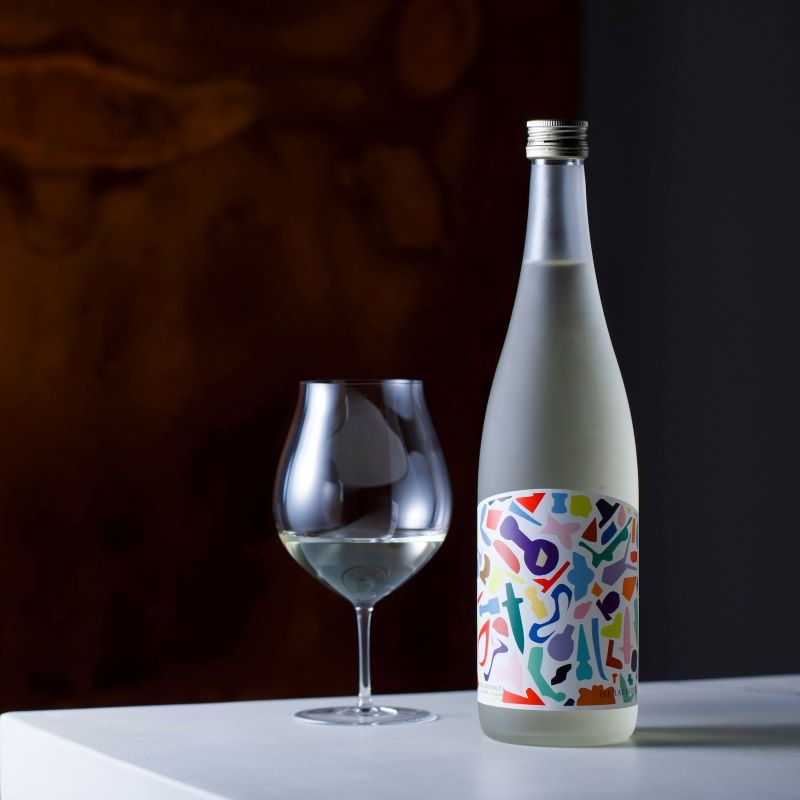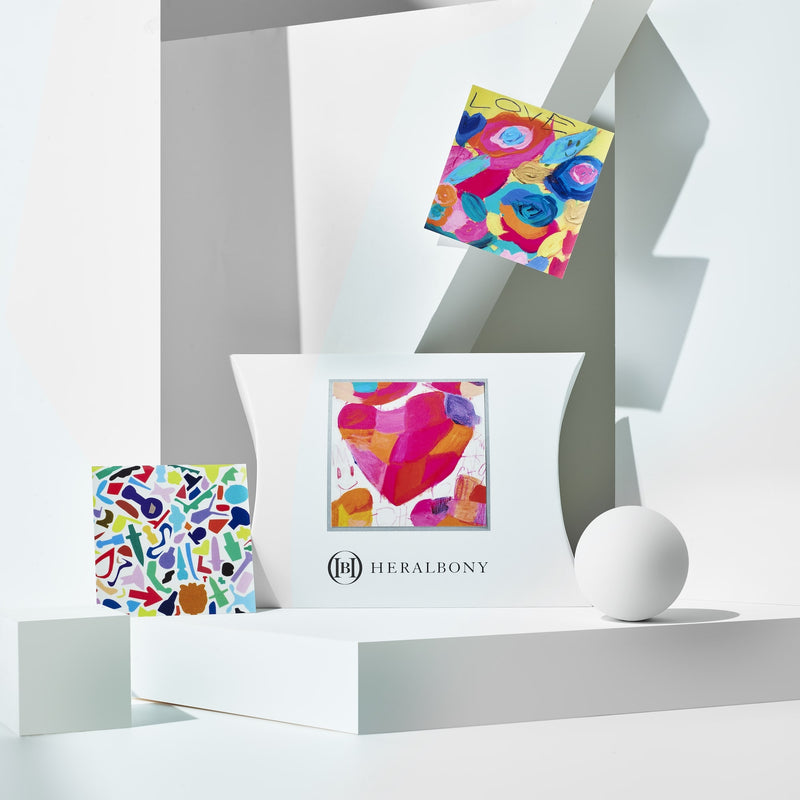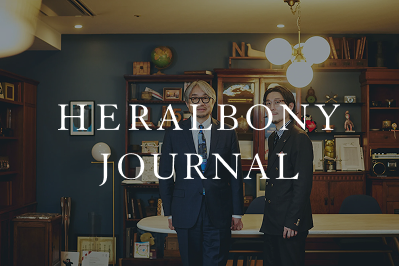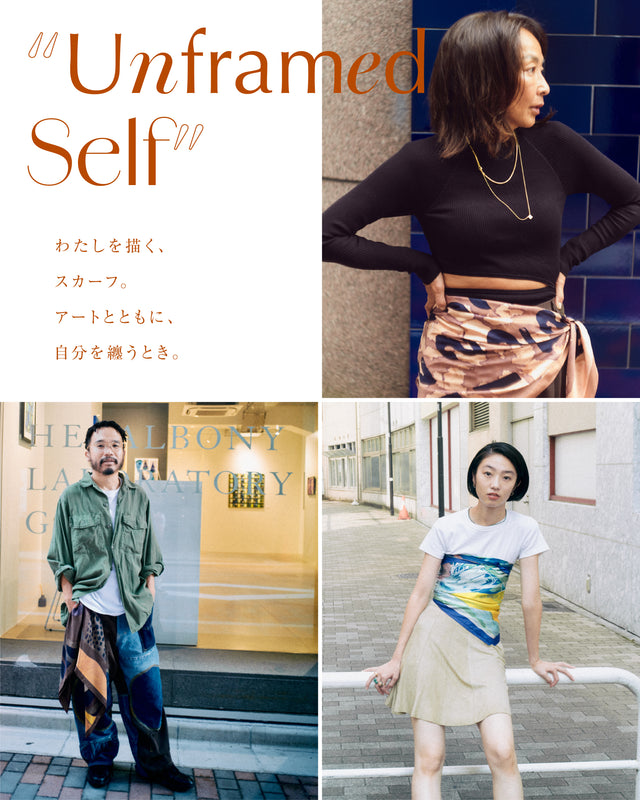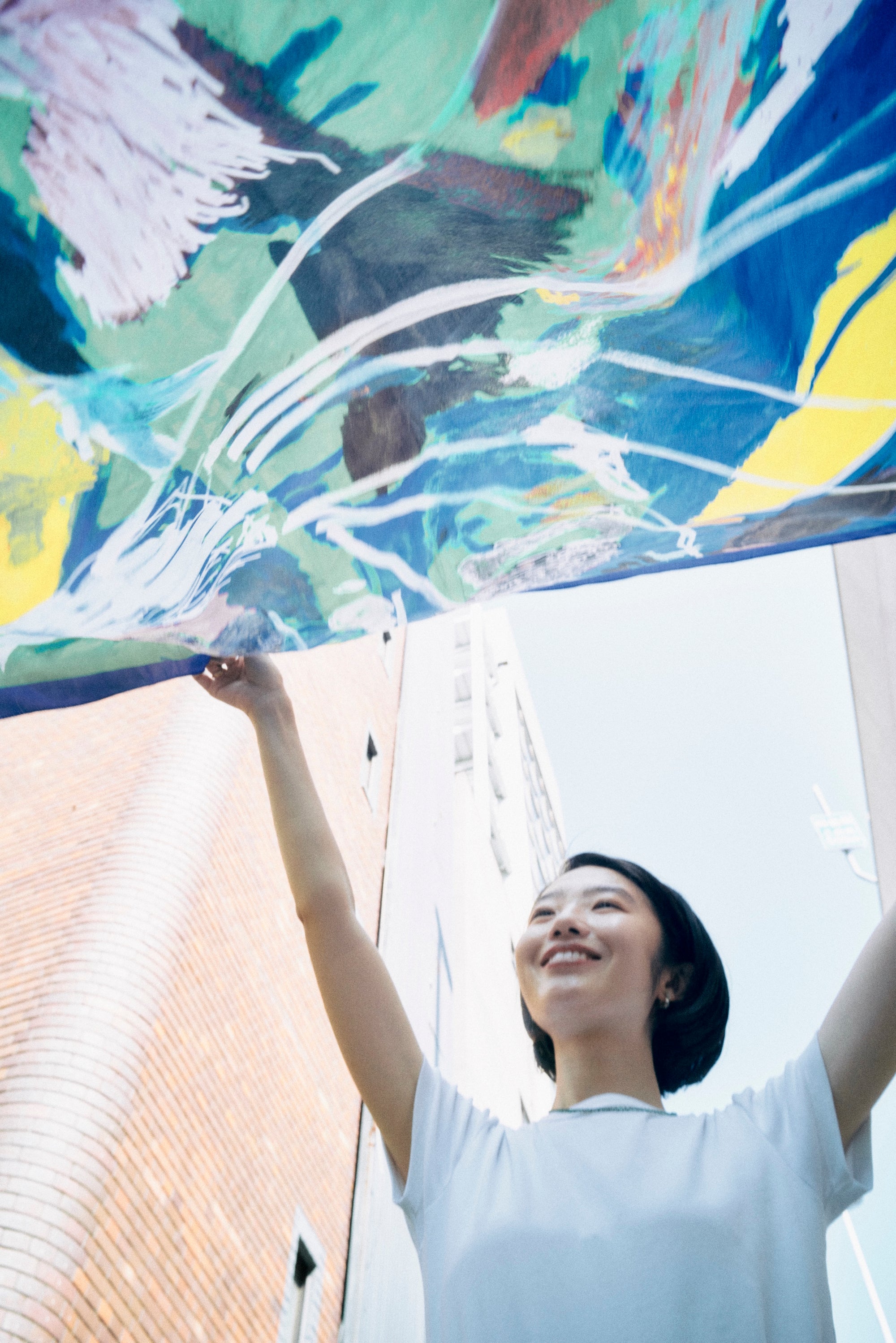
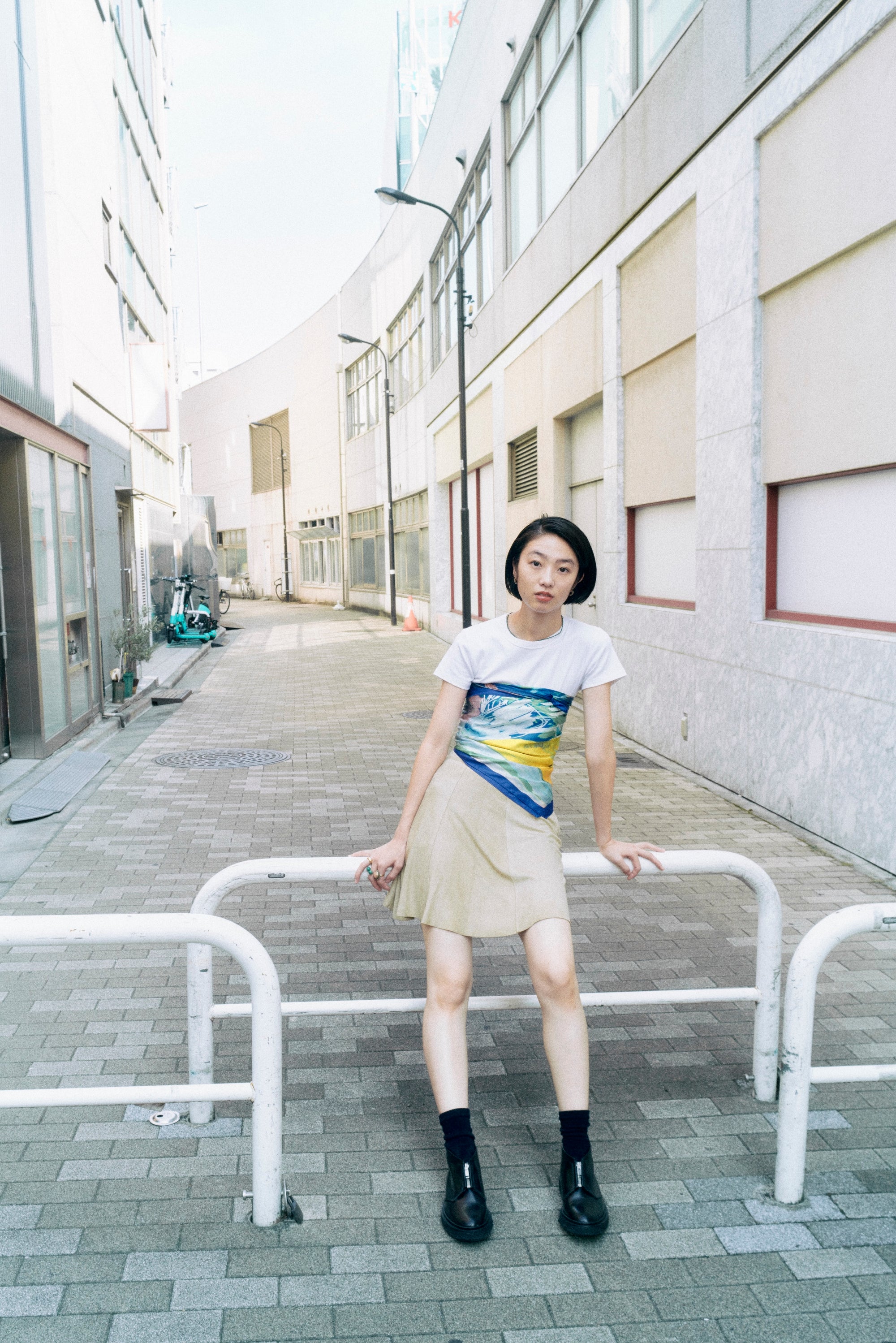
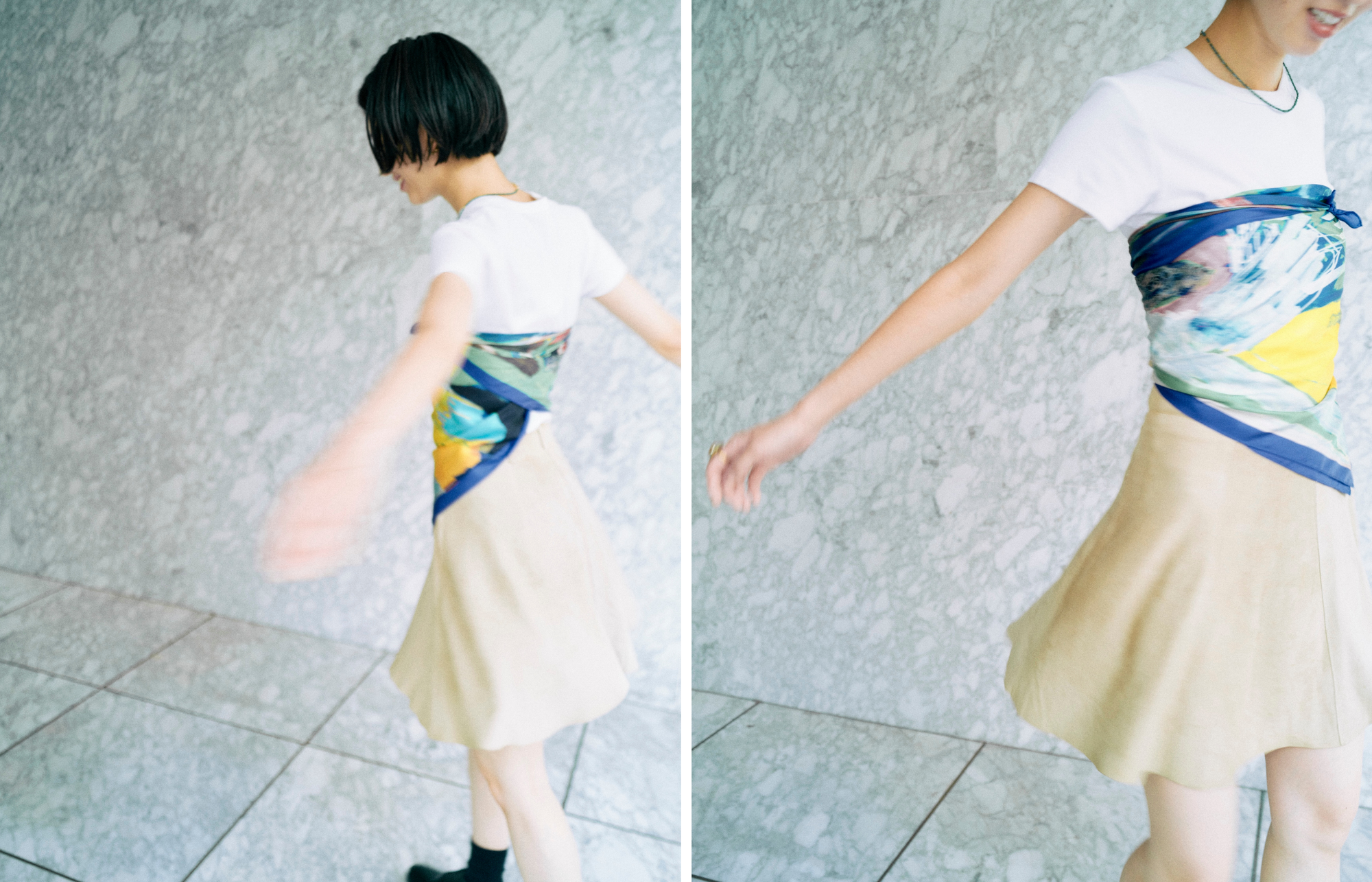
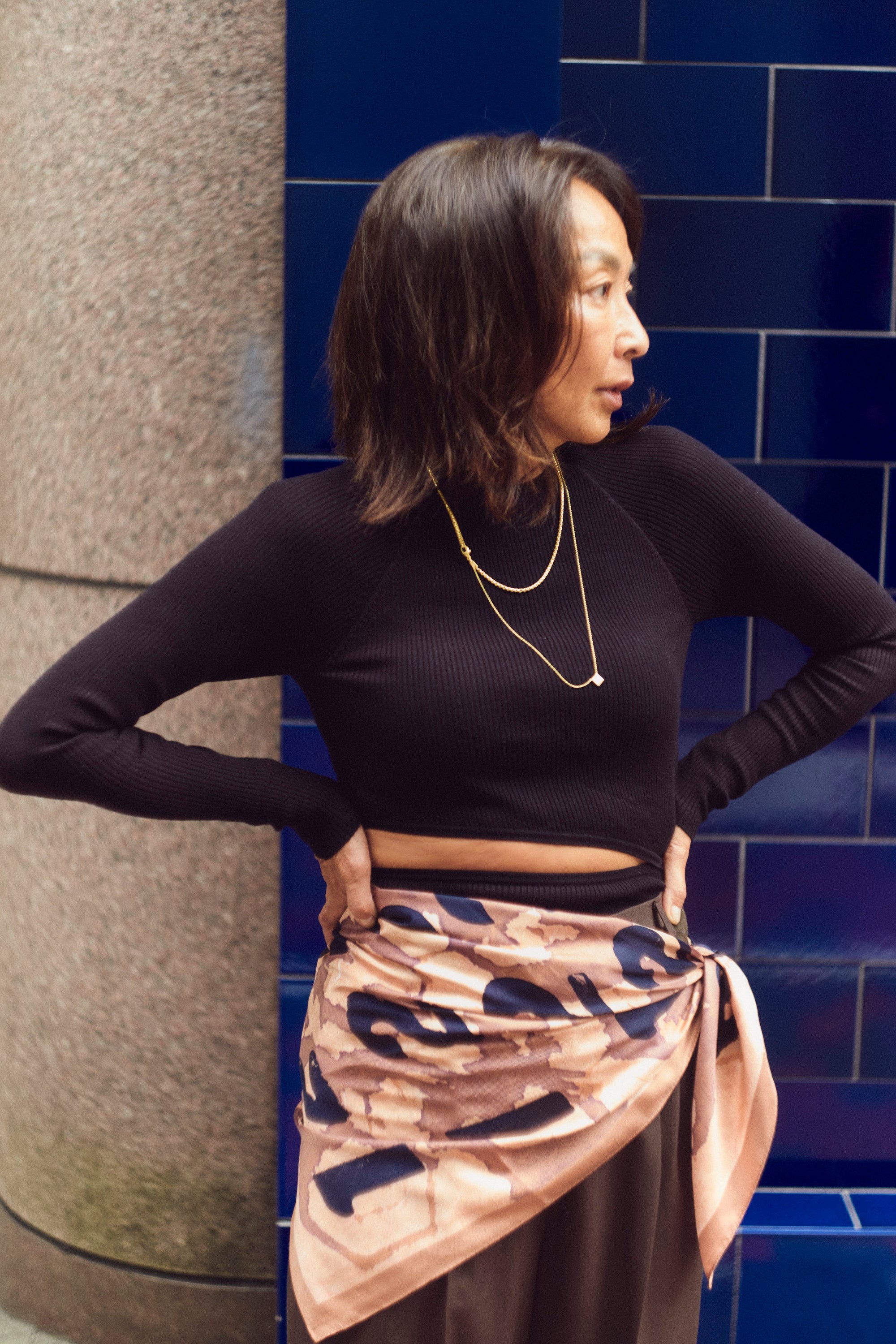
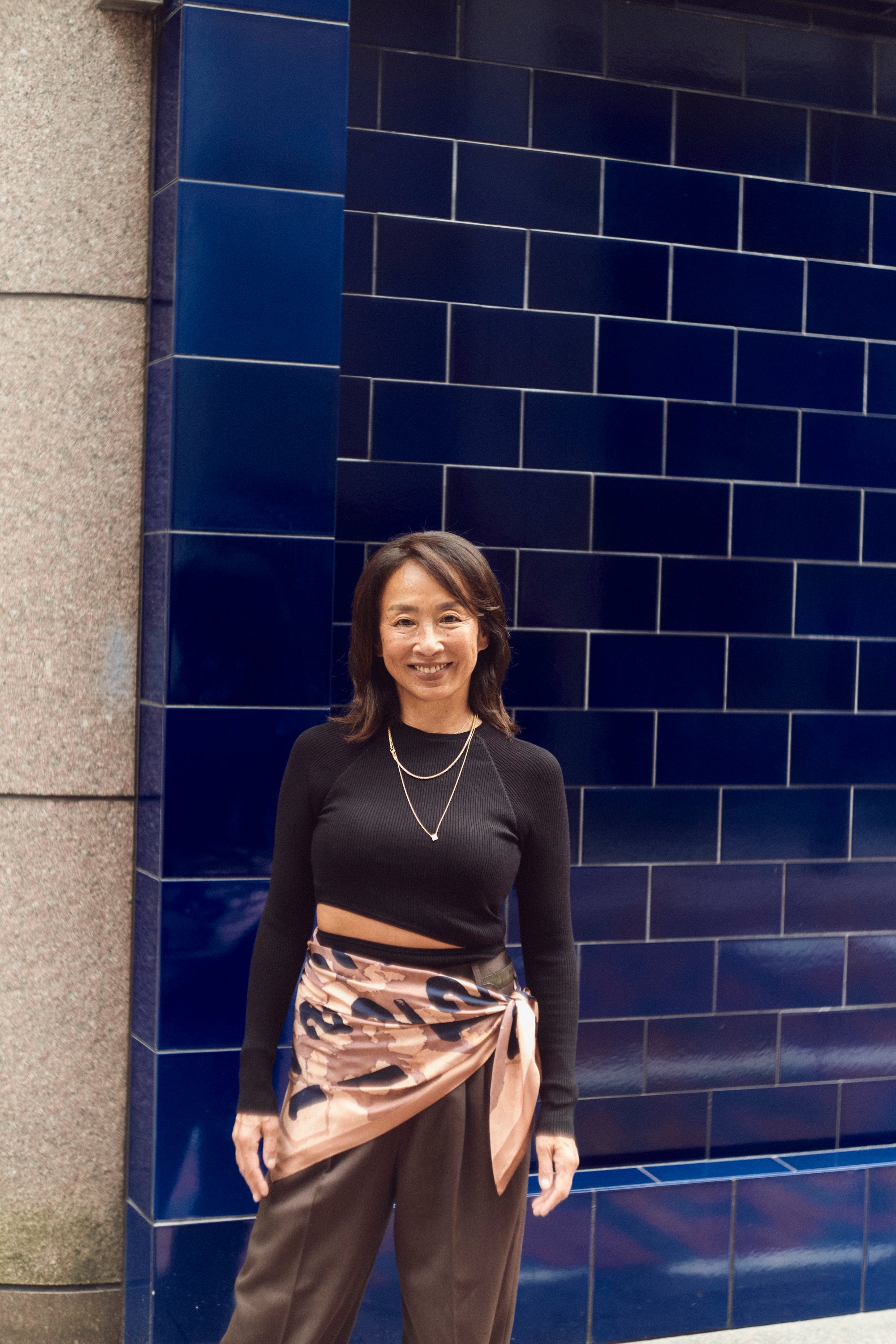
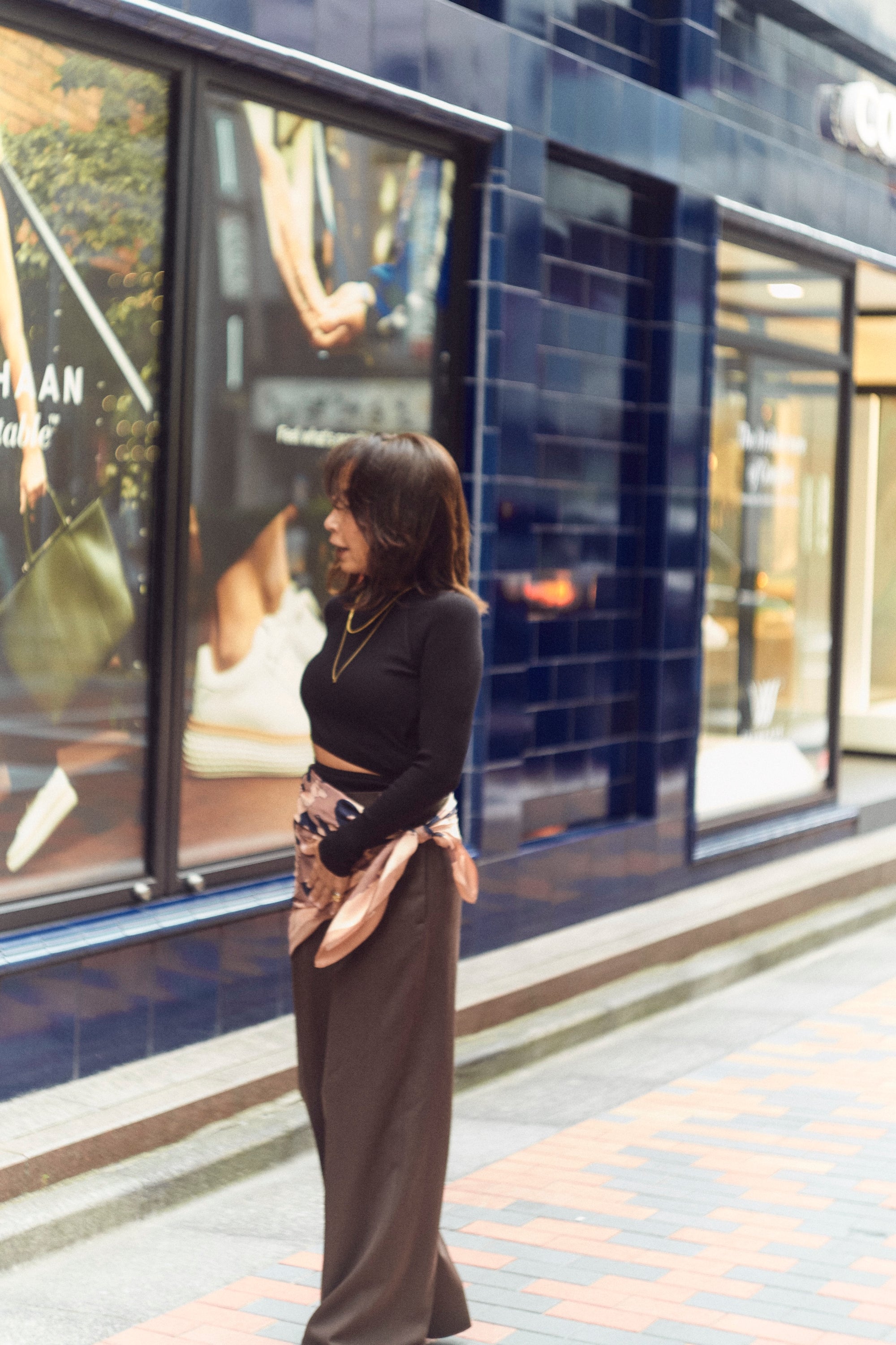
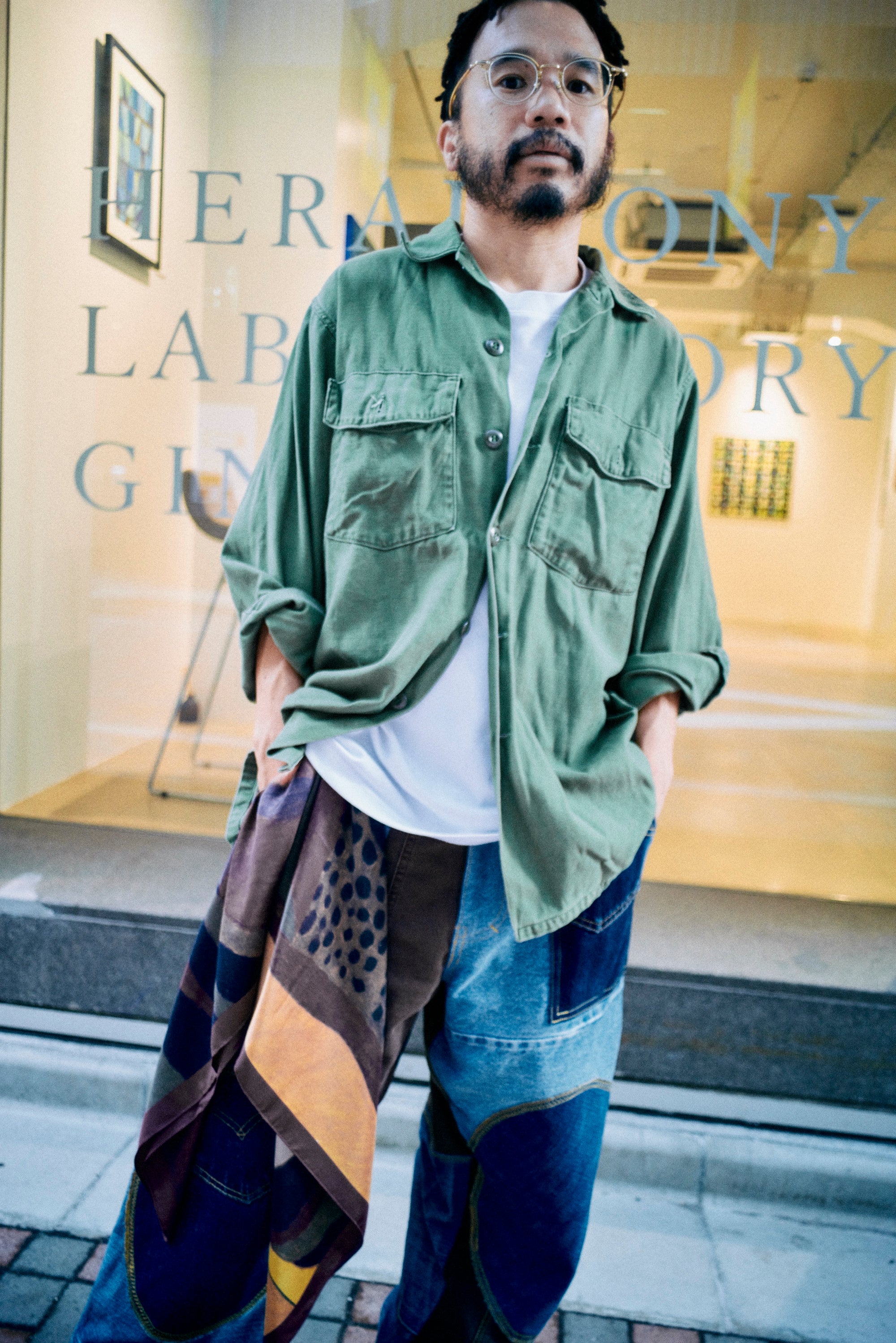
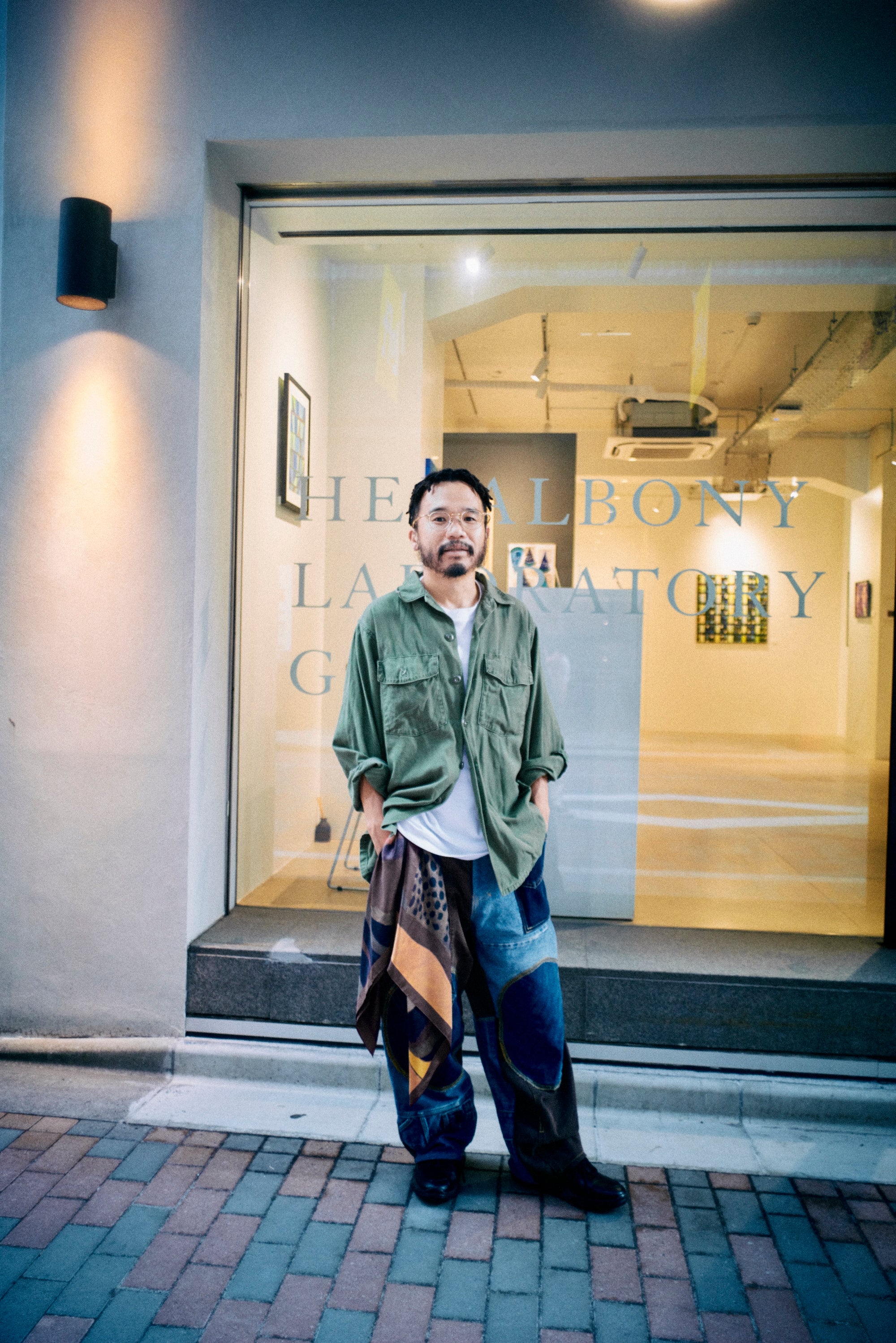
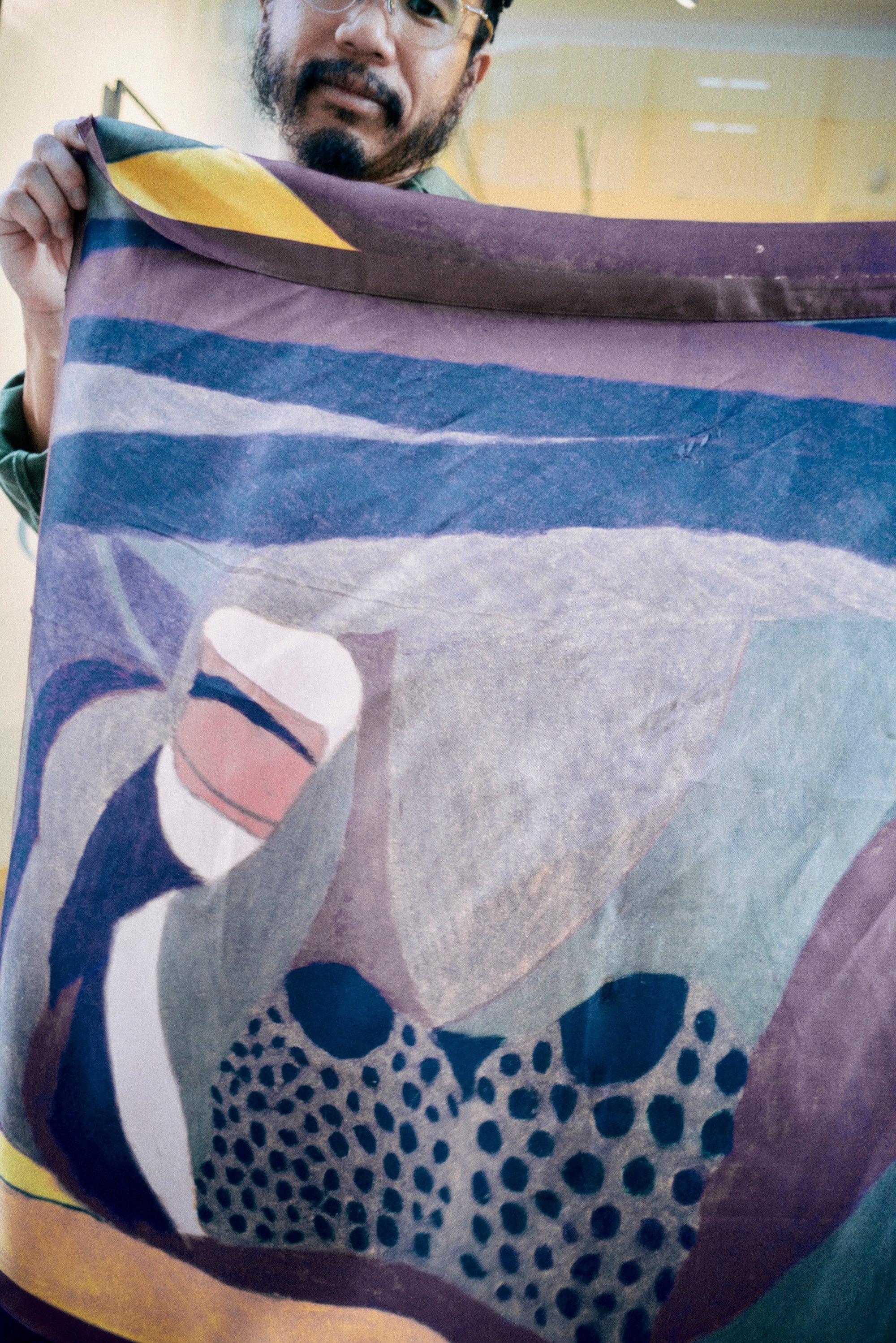
Interview à propos de votre
« Soi sans cadre »
Maho Aikawa
Model / PR @mahoaikawa3
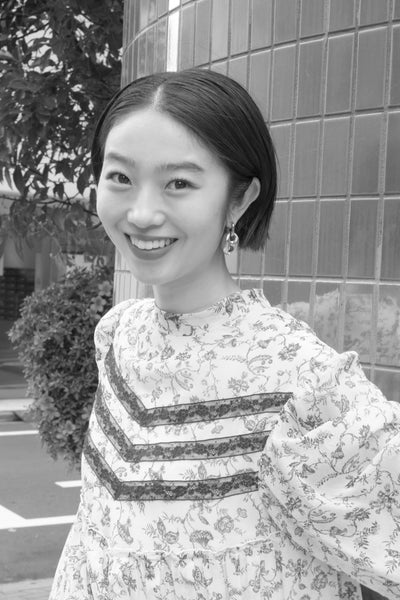
The reason I chose to major in photography at university was because I felt more strongly that I wanted to interpret the work than I did the creative desire to take pictures. So I basically like to first choose something that I feel I like intuitively, and then dig deeper into it. That's how I've decided on all my work up until now, and I really value my intuition as to whether something excites me or not.
The scarf I chose this time, "Ghost" by artist Kohei Sato, was also chosen intuitively. I like it because it looks different depending on how you fold it, and it looks great no matter how you use it.
Even now, scarves are an essential item in my styling, so when I think back, I think it was my grandfather's image that first made me realize that fashion was fun.
Also, I easily develop feelings for people. Even if I've only met someone once, I always remember them and automatically wish them happiness. But I think I "like" myself, including the parts of me that value those connections with people and my weak parts.
Tsugumi Watari
Stylist @tsugumiw
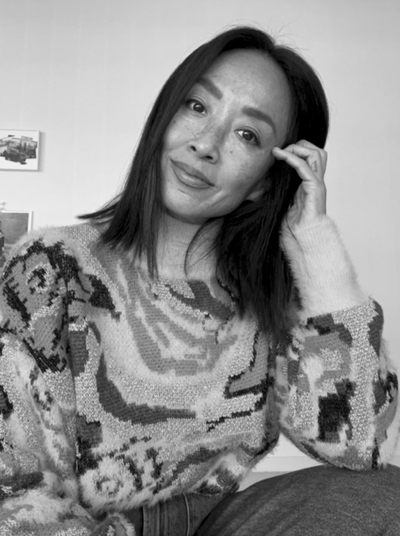
I look at them and they inspire my own styling and creative fantasies. I also watch old TV dramas and movies. Even if they're not modern fashion, I often incorporate things that I think are cute into a modern style.
The next time was when I was in junior high school. I had a boy in my class who was very fashionable, influenced by an older girl in high school. I really liked the sweater he gave me. From then on, I became interested in traditional clothing. In this way, I was influenced by the people around me at key points, and the clothes I wore changed, and I think I developed various fashion styles that were unique to me.
This time, I chose a scarf called "Title Unknown" by artist Momoko Nakagawa because it has a lovely brown gradation. As for styling, rather than mixing colors, I'm currently in the mood for a chic brown one-tone look.
If I even slightly deny the options I have at the time, I feel like a huge failure and end up feeling negative, so I always try to think of my options in a positive light.
For example, when I was just starting out as an office worker, I wore a uniform during work hours, but my boss once scolded me for the way I dressed to go to work. But I didn't change my opinion. Because, even if I was just going to work, being able to freely enjoy fashion increased the motivation of my female colleagues, and I still think that it was a good thing in the end (laughs).
Even now, I still remember the importance of valuing my own will and my motivation for fashion at that time.
Mabanua
Musician @mabanuainsta
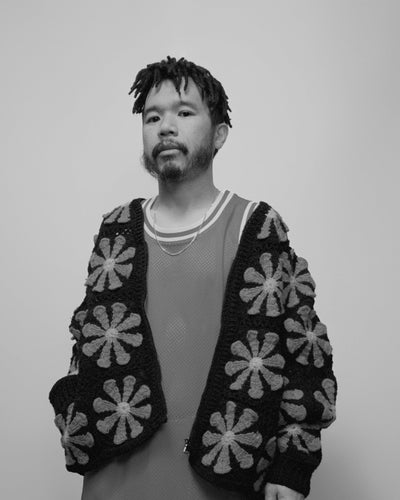
Being praised when I performed in front of people made me want to make more people happy and pursue what I love more. It's not just about loving music, it's important to have the passion to "create" and "make lots of people happy." There was a time when my parents were against it, but I think they saw my attitude and supported me.
Ultimately, it's important to clarify what kind of music you want to make, and there's more than one way to get there.
If you listen carefully to everything from intuition to practical matters and input how you can translate that into music, ideas will mysteriously come to you. Conversely, if you become too attached to an idea that you've spent a lot of time developing, it can hinder the completion of the work, so you should cut out anything that isn't necessary.
Because music reaches the listener as a single "block," it is important to take a bird's-eye view and look at the whole picture.
I felt something similar in the "Nap" scarf by artist Daisuke Shibuta, and was drawn to the exquisite balance of colors. Also, being true to yourself might mean "not thinking about anything" without any evil thoughts. Sometimes the gazes of those around you or a business perspective can limit your ability to be true to yourself, and there are times when I think "wouldn't it be purer to do something as a hobby?"
Art is inherently a sensory thing, so I sometimes wonder if converting it into money is somehow a stretch.
|Credit
Photography: Mai Kise
Hair & Makeup: Narumi Tsukuba (Maho Aikawa)
Interview: Chiho Hashimoto
Direction: Aya Satake
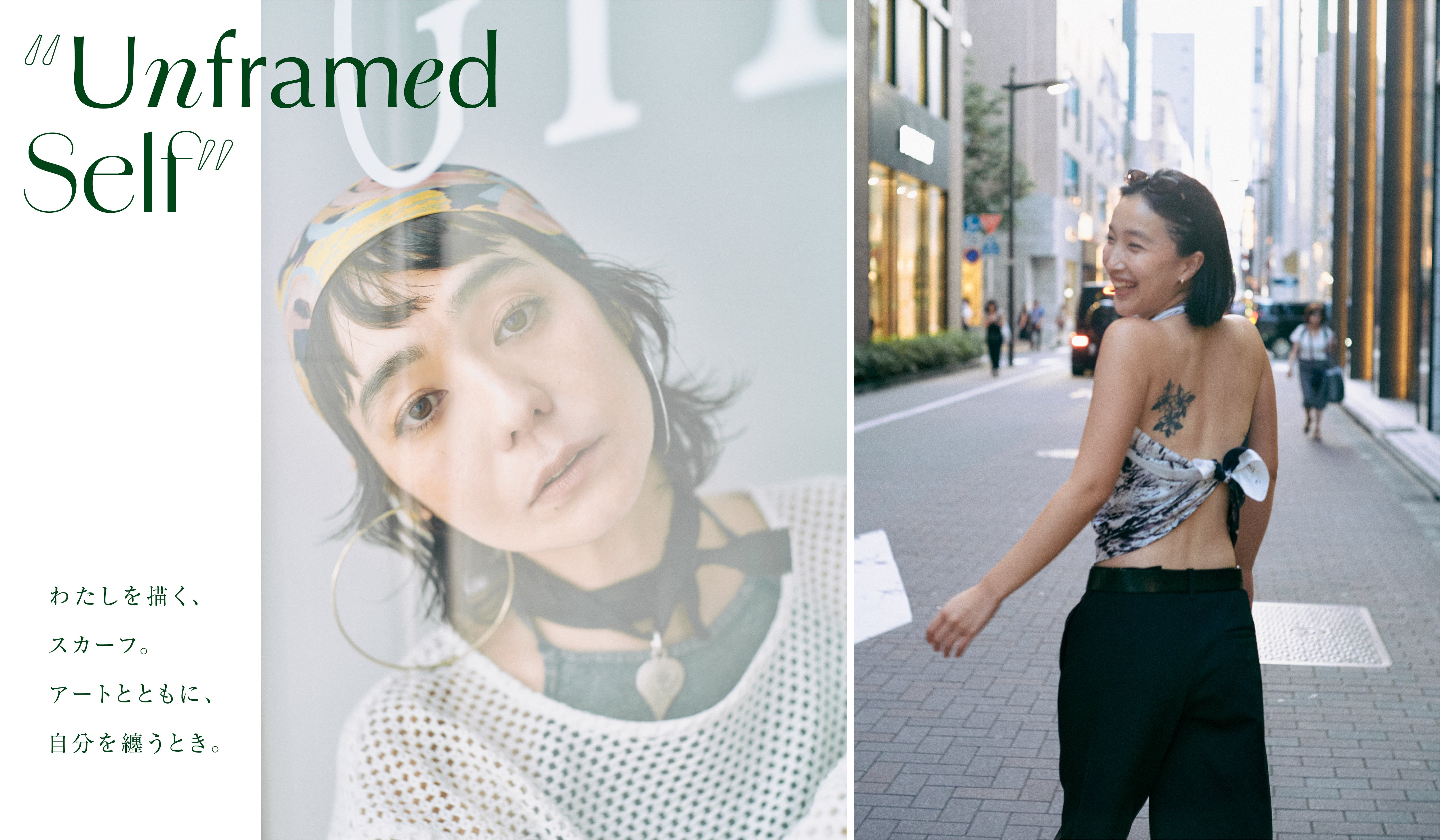
“Unframed Self” Vol.1
Vol.1 features popular model Rena Takeshita, who is also renowned for her fashion sense, and HARU, who is active in a variety of fields as a fashion stylist and DJ.
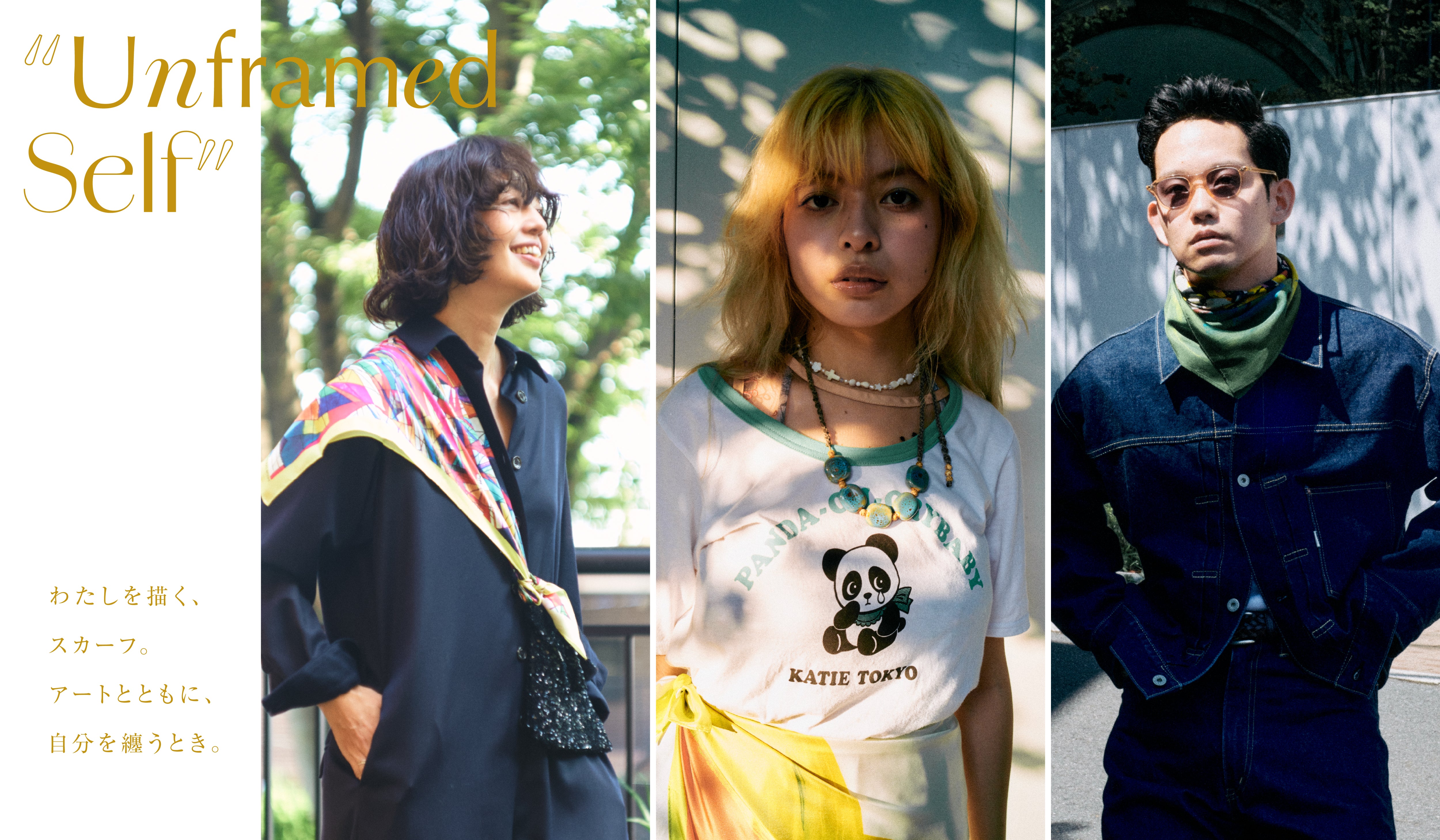
“Unframed Self” Vol.3
Vol.3 features Anio Tenyu, a model and artist who maintains her unique sensibility; Ayuko Hamanaka, who runs the brand Uhr, which reflects the mood of the times while also incorporating a touch of mature charm; and Shinnosuke Kawada, a product planner who is renowned for his unique styling that incorporates core traditional items into modern styles.
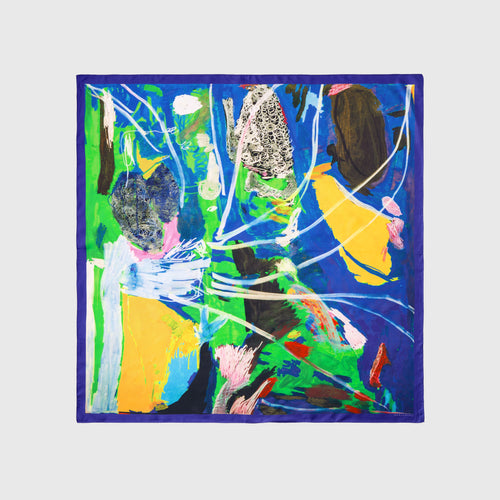
Silk scarf "Ghost"
Kohei Sato
(Shizensei Club, Ibaraki Prefecture)
Discovering the joy of physical activity from an early age, he began attending dance classes at the age of six. He is currently active as a hip-hop dancer with Down's syndrome. At the Shizensei Club, he is passionate about farming and playing the taiko drums in creative Dengaku dances, and his powerful shouts inspire and motivate his peers. At first, he was reluctant to paint, but now he freely moves his pen across large canvases. He is also increasingly drawing letters that combine dots and lines in a unique way.
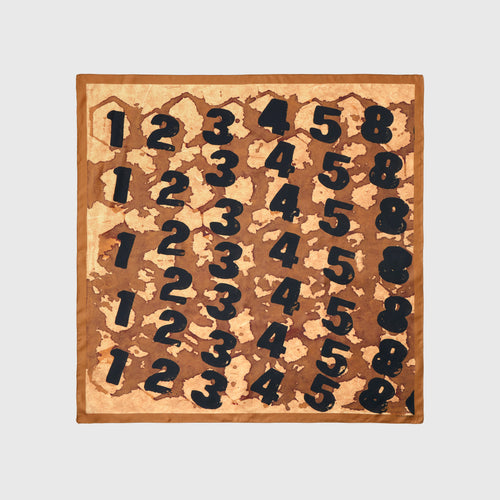
Silk scarf "Title Unknown"
Momoko Nakagawa
(Yamanami Koubou, Shiga Prefecture)
Born in 1996, currently living in Shiga Prefecture. Has been working at Yamanami Kobo since 2015. At first, she wrote her own name, "Momoko," over and over again. However, as if enjoying the sensation of drawing, she began to draw and layer circles instead of names. Smiling and humming a song, she layered circles over and over using paints, ballpoint pens, and colored pencils to create vibrantly colored works that seem to express her cheerful expression.
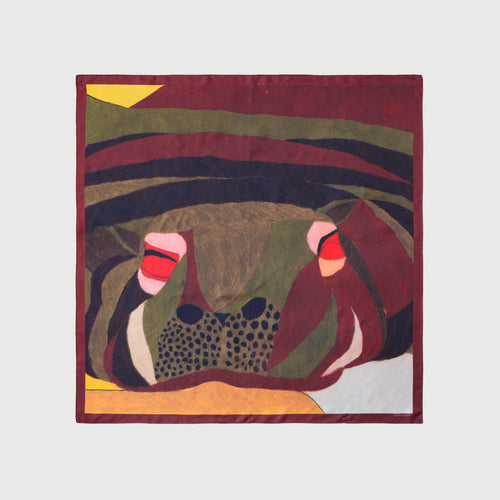
Silk scarf "Nap"
Daisuke Shibuta
(Tomoni - Wakayama Prefecture)
Born in 1995, currently living in Wakayama Prefecture. She loves animals and visits aquariums and zoos for inspiration. She creates vibrant works by freely drawing the world she imagines in her head without any preliminary sketches.


